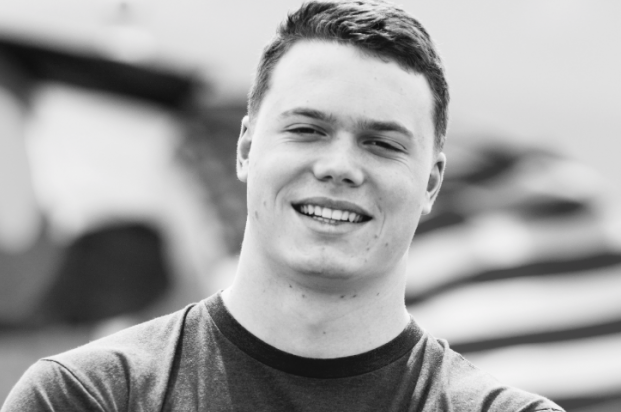This Weightlifter Turned Data Analyst Shares His Biggest Advice for Succeeding in Boot Camp

Athletics and data analytics may seem like two separate worlds. But recent data analytics boot camp grad Ian Wilson combined these two passions into a successful career at workout startup Fitbod.
Having spent over a decade as a competitive weightlifter, Ian loved sports, so much so that he would analyze each and every performance in order to improve. But following the 2017 Weightlifting World Championships, Ian realized he wanted to channel that same commitment and enthusiasm into an exciting career—one that would be lucrative for years to come.
Thinking about his interest in data (and realizing that data science is one of the most in-demand job fields on the market), he decided to enroll in the UC Berkeley Data Analytics Boot Camp, a 24-week, part-time, project-based learning program powered by Trilogy Education. The students go through a rigorous curriculum built to help graduates hone both hard and soft skills, allowing them to emerge from the program ready to thrive in the job market and meet employers’ needs. And, like Ian, many end up successfully merging their new tech skills with their deepest passions.
Here’s how Ian came to enroll in the boot camp, and what he says all boot camp students can do to succeed.
What made you interested in data analytics?
For 10 years, I was a competitive weightlifter. As an athlete, I would always analyze my performance so that I could improve, something I really liked. After graduating from UC Santa Cruz with a BA in economics, I worked as a rail simulation analyst and continued my athletic career.
But following the 2017 World Championships, I realized I wanted to change my career. I started reading about various career tracks, and data analytics stood out to me as a natural fit. I’ve always been interested in analyzing data, but I didn’t have the programming skills. I was concerned about what I was getting myself into, but I decided to enroll and go all in.
What were some of the biggest challenges of the course?
Before the boot camp, I didn’t really know anything. So keeping up with the course was pretty challenging. It takes time to learn a programming language, and I realized that there is no substitute for sitting down and working on problems for hours until you understand the material.
The goal was to get to a level in programming where an employer would find me of value. And that was the biggest challenge. But ultimately, if you’re willing and able to put in the time and effort, it’s doable.
It was also difficult because I would consider myself an independent learner. I always found the classroom a difficult place to learn. But throughout the boot camp, the TAs were incredibly helpful. I would go to them whenever I couldn’t figure something out, and they were very hands-on with teaching. Programming is difficult, so it’s really important to have resources to rely on, especially early on.
What are the biggest pieces of advice you have for people considering enrolling in a boot camp?
You have to be prepared to put in a lot of hours to learn the material. It’s also helpful to know how you want to specialize before the boot camp starts. I knew that Python and SQL were the two skills I needed most, so that’s where I put most of my focus.
The boot camp will introduce you to a lot of very useful topics, but it’s best to pick a few to really learn well over the short 24 weeks. Once you decide, you can dedicate more time to doing projects in those fields to really expand your knowledge base and make yourself more valuable to employers.
How has the boot camp helped in your career?
I learned essential tools in data analytics, which helped me get my current job as a data analyst at Fitbod (where I can merge my love of data and my passion for athletics). My position requires me to use most of the skills I learned in the boot camp, especially Python and SQL. But continuing to learn is important. It’s a deep interest of mine and it’s also a necessity if I want to keep improving in my job.
In the coming years, I want to better understand program efficiency, multithreading, and machine learning libraries. The boot camp provided the base for continuing to learn.
What’s the most important thing you learned over the course of this experience?
That I have learned less than one percent of what I would like to know. But that just means I get to keep learning and improving.
It’s not easy going from knowing almost nothing about data to becoming interview-ready. You have to be really determined and passionate about learning. Doing one or two of the homework assignments isn’t really enough to be ready for a technical interview or a job. You have to use the resources of the boot camp and commit yourself to getting on track to being employer-ready. It’s difficult, but it’s possible. I did it.
 Live Chat
Live Chat